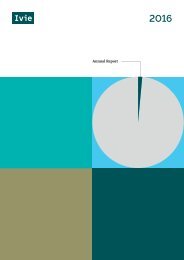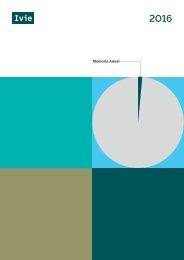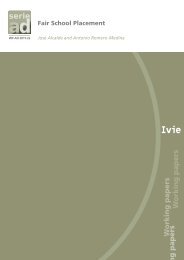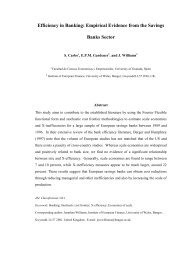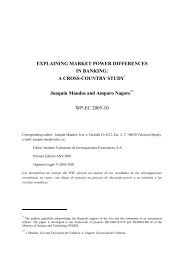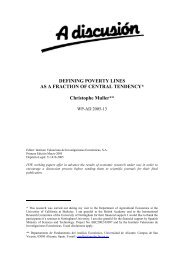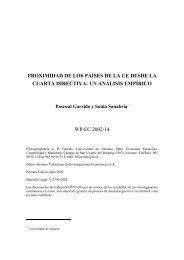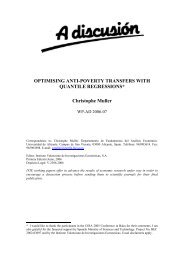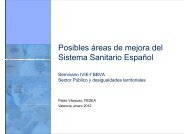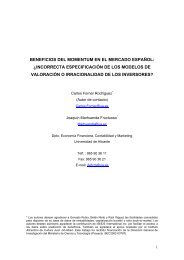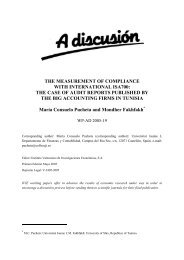Download PDF - Ivie
Create successful ePaper yourself
Turn your PDF publications into a flip-book with our unique Google optimized e-Paper software.
not allow us to distinguish each individual force and characteristic driving this differential savings<br />
pattern.<br />
4.2 Sensitivity Analysis<br />
Our results are robust to controlling for age and education squared, presence of grandchildren, and<br />
self-employment status. Exclusion of the observations associated with the top one or five percent of<br />
the distribution of our dependent variables does not alter our findings. When we modify the age<br />
thresholds, from 60 to 75 years old for the elderly sample, and from 30 to 45 years old for the<br />
young sample, respectively, the associations between homosexuality and the retirement income and<br />
mortgage ratio remain unchanged, nor do they change when we use the log of the income variables,<br />
or when we consider only first mortgages or exclude the property tax and insurance payments.<br />
Using house value as dependent variable for the specifications run in our elderly and young<br />
samples yields a distinctive pattern of results (Table 7, columns 1 and 2). In both samples, now gay<br />
and lesbian couples exhibit a different behavior, with gay households owning more expensive<br />
houses than lesbian and married couples. Conversely, lesbians own cheaper houses than married<br />
couples. House value represents an important form of saving for old age, and a large component of<br />
household wealth (the largest for the elderly). Our estimated homosexual-specific house value<br />
differentials are in line with Jepsen and Jepsen (2009) and Leppel (2007). Using the same US<br />
Census 2000 data, they empirically tests home-ownership rates differentials by sexual orientation,<br />
and find that the homosexual households’ rate of ownership is lower than for married but higher<br />
than for opposite-sex cohabiting couples. Jepsen and Jepsen (2009) also show that the house value<br />
is higher for gay couples than for married ones (although controlling for metropolitan area fixed<br />
effects makes their difference insignificant), whereas lesbian couples own houses of lower value<br />
24



